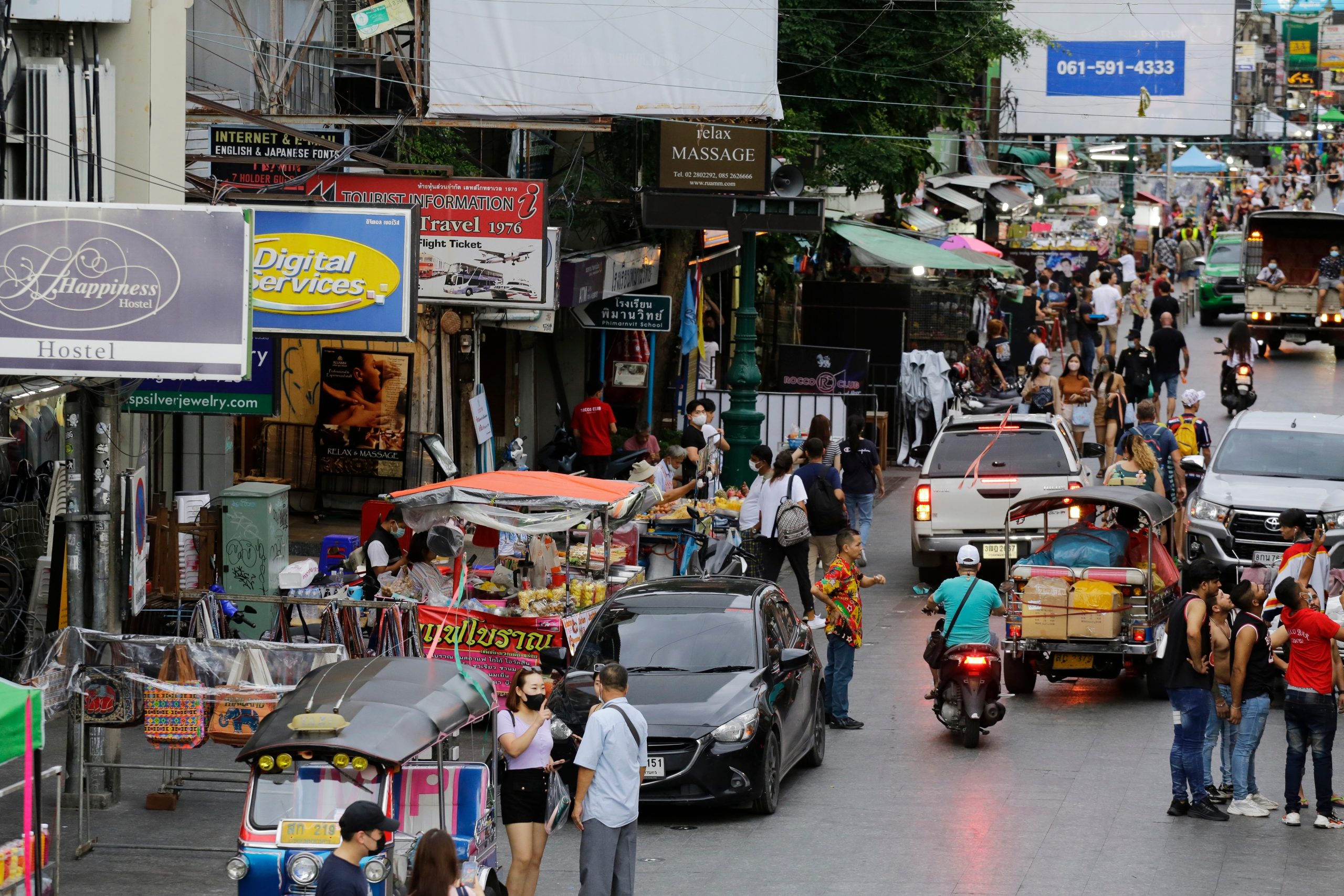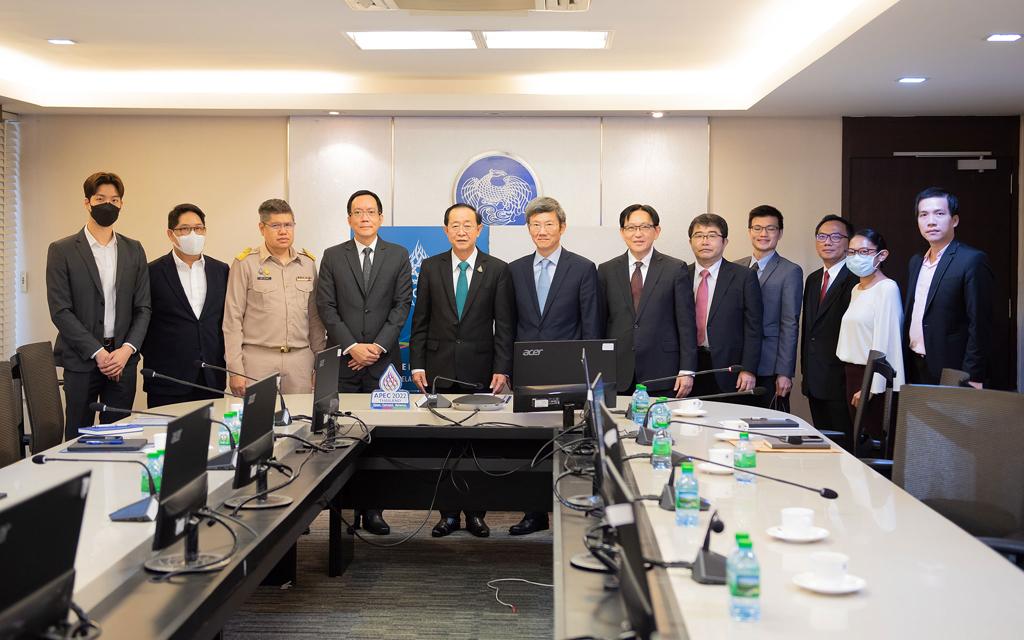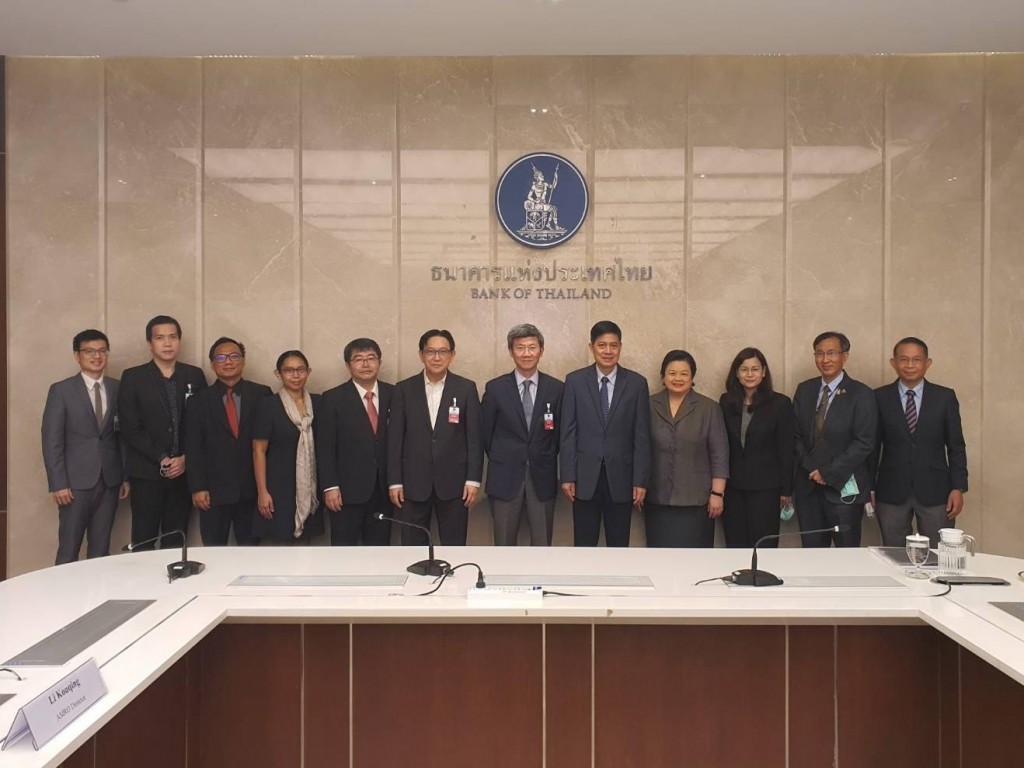
Image: Nelson Antoine / Shutterstock.com
SINGAPORE, September 7, 2022 – Thailand’s recovery is gaining momentum on the back of strengthening domestic demand and a stronger rebound in tourist arrivals. However, concerns over the slowing global economy, prolonged supply-chain disruptions and high inflation weigh on its prospects. As fiscal and monetary policy support are gradually withdrawn, policymakers will need to prioritize its post-pandemic recovery efforts and deal with the long-term challenges posed by the economic scars, rapidly aging population and climate change.
These findings are based on the preliminary assessment by the ASEAN+3 Macroeconomic Research Office (AMRO), after its Annual Consultation Visit to Thailand from August 11 to September 1, 2022.
The mission was led by AMRO Lead Economist, Sumio Ishikawa. AMRO Director, Kouqing Li and Chief Economist, Hoe Ee Khor participated in the policy meetings. The talks focused on Thailand’s economic recovery, policies to address the potential risks and structural challenges, and on maintaining financial stability and medium-term debt sustainability.
Economic outlook
“Thailand’s economy is projected to recover at a faster pace of 3.2 percent in 2022 from 1.5 percent in 2021 given the strengthening domestic demand and faster return of tourist arrivals,” said Ishikawa. “The slowing global economy, supply chain disruptions, and high inflation are the key near-term risks. Structural reforms will be needed to raise Thailand’s growth potential and to address the long-term challenges.”
The hospitality sectors have benefitted the most from the strong rebound in tourism activities. Private consumption grew strongly, supported by robust tourism spending, labor market recovery and rising farm income. However, goods exports have slowed, reflecting the global economic slowdown. Inflation rose sharply due to the surge in global oil and commodity prices. Inflation is projected to rise to 6.4 percent in 2022, while core inflation is expected to continue rising steadily due to higher prices of prepared and cooked food.
Commercial banks’ capital buffer is strong and liquidity remains ample. Asset quality has remained stable while bank lending rose, partly reflecting the Bank of Thailand’s (BOT’s) expanded financial assistance efforts for borrowers and financial institutions. In particular, the long-term debt restructuring measure is aimed at reducing the debt burden commensurate with the reduced income of debtors. To help accelerate such pre-emptive long-term debt restructuring, the BOT temporarily eased some regulations for banks until end-2023.
Fiscal policy remains expansionary as the authorities continue to roll out fiscal measures to mitigate the impact of the pandemic and provide additional support to counter the higher cost of living. This includes fuel subsidies by government-backed institutions to help Thai households and businesses cope with the high inflation.
Risks and vulnerabilities
Downside risks to growth stem mainly from a protracted global slowdown, further supply chain disruptions, and the emergence of more virulent strains of COVID-19. A prolonged and sharper rise in U.S. interest rates would heighten the risks of capital outflows, a further increase in borrowing costs, and exchange rate depreciation pressure. Inflation may stay elevated for a longer period due to the withdrawal of price subsidies and higher wages.
In the medium-term, the high subsidy costs of quasi-fiscal operations borne by the government-linked institutions will increase the size of public debt. The significant economic scars from the pandemic can be a drag on growth in the long-term. Thailand will also need to address the structural challenges from a rapidly aging population, digital transformation and climate change.
Policy recommendations
The unwinding of COVID-19 fiscal support is appropriate as Thailand has achieved a high vaccination rate while growth prospects have improved significantly. The tapering of broad-based subsidies is encouraged while welfare support for vulnerable groups should be provided temporarily for this period of uneven economic recovery.
Fiscal consolidation focusing on revenue enhancement should be accelerated to rebuild fiscal space. Expenditure consolidation can be more gradual, complemented by effective allocation and management of public resources toward infrastructure development and structural reforms, which are necessary to transition to a more sustainable and digital economy.
Further normalization of monetary policy is appropriate given the risk of the elevated inflation becoming entrenched as the recovery continues to gain momentum. Monetary policy normalization, in close policy coordination with other government agencies, would help rein in excessive build-up of leverage in the economy.
BOT has been providing financial assistance measures in response to the COVID-19 situation, to support the funding needs of hard-hit borrowers and businesses and cushion the scarring impact on the economy. AMRO supports BOT’s sustainable and time-bound debt resolution measures, and the authorities’ close monitoring of banks’ loan restructuring activities to ensure the restructuring method is properly applied to the affected borrowers. Authorities are also encouraged to remain vigilant over the high household debt burden. To rein-in excessive borrowing by households, the establishment of a Debt Service Ratio framework is encouraged.
Post-pandemic, efforts to boost public investments and enhance productivity of workers should be accelerated to raise Thailand’s growth potential. The four new economic zones will further promote the economic development of regions across the borders of Thailand and deepen Thailand’s trade and investment linkages with its neighboring countries. The social security system should also be enhanced to prepare for the aging population. On climate change, targeted and well-communicated incentives, and coherent policy support, will be crucial in driving Thailand’s transition toward a greener economy. Financial digitalization, together with safeguards and sound risk management practices, can promote a more efficient and resilient payment system.
The AMRO team would like to express its gratitude to the Thai authorities and other participating organizations for their cooperation and candid exchange of views. AMRO wishes to express its appreciation to the authorities for their strong support and excellent arrangement that have made this on-site mission possible.

AMRO Director, Kouqing Li and Chief Economist, Hoe Ee Khor and the AMRO Thai team met with Finance Minister, Arkhom Termpittayapaisith and other senior officials from the Thailand Ministry of Finance.

AMRO Director, Kouqing Li and Chief Economist, Hoe Ee Khor and the AMRO Thai team met with Deputy Governor, Mathee Supapongse and other senior officials from the Bank of Thailand.
–
About AMRO
The ASEAN+3 Macroeconomic Research Office (AMRO) is an international organization established to contribute towards securing macroeconomic and financial stability of the ASEAN+3 region, comprising 10 members of the Association of Southeast Asian Nations (ASEAN) and China; Hong Kong, China; Japan; and Korea. AMRO’s mandate is to conduct macroeconomic surveillance, support the implementation of the regional financial arrangement, the Chiang Mai Initiative Multilateralisation (CMIM), and provide technical assistance to the members.
